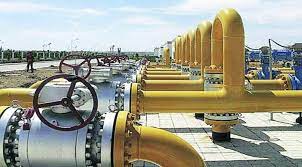Pros And Cons Of Natural Gas For Your Home
Natural gas production has been increasing since the 2008’s economic crisis. It has experienced a compound annual rate of growth of 2.6%. Global natural gas production reached an all-time high in recent years, 3.768 trillion cubic meters. Energy Information Administration states that the amount of production amounts to more than 35% of Americans They use natural gas for fuel in their homes.
With the growing use of natural gas in Georgia, what do you need to know about the advantages and disadvantages of this fossil fuel?
1.What Are The Pros & Cons Of Using Natural Gas?
Today, natural gas is the third most important fossil energy source in the world. Natural gas is formed from organic matter that has been around for millions of years. It is found deep below the earth’s surface. Methane is the largest component of natural gas, but there are also hydrocarbon gases and hydrocarbon liquids.
PROS OF NATURAL GAS
- Widely used, contributes to 21% of the world’s energy production till date
- Existing delivery infrastructure
- Used extensively for power generation as well as heat
- Cleanest of all the fossil fuels
- Burns quite efficiently
- Emits 45% less CO2 than coal
- Emits 30% less CO2 than oil
- Abundant supply in the US. DOE estimates 1.8 trillion barrels
- Low levels of criteria pollutants, (e.g. SOx, NOx) or soot when burned
- Can be used as an automotive fuel
- Burns cleaner than gasoline or diesel
- No waste (e.g. ash ) or residue to deal with
- Lighter than air, safer than propane which is heavier than air
- Can be used to makes plastics, chemicals, fertilizers and hydrogen
- The Natural gas industry employs 1.2 million people
CONS OF NATURAL GAS
- Non-renewable: While we have a lot of resources, it is unlikely that we will find new reserves in the near future. we might run out of natural gas to power our engines and provide fuel once we exhaust our current supply.
- Harmful In Its Natural State: Because this fuel is primarily composed of methane, unburned natural gas is around 70 times as potent as carbon dioxide.
- Explosive and potentially dangerous: One of the biggest hazards of natural gas is that it is toxic and explosive, making a leak potentially fatal. For example, in 2010 a natural gas pipeline exploded in a residential area of San Bruno, Calif., killing eight people.
- Hard To Detect: natural gas is normally odorless, however, most companies add a scent to it (usually sulfur) to make a leak easy to detect.
- Requires Expensive Infrastructure To Deliver: much of the infrastructure to extract and transport natural gas hasn’t been upgraded since the 1970s. new upgrades are necessary to maintain the effectiveness of this system, but they will come at a price.
- Expensive To Deliver To Home: if your Georgia home is not currently outfitted for natural gas it can cost between $10,000 and $20,000 to make the conversions for your home.
2. Natural Gas Conservation Tips
There are many ways you can save money on your Gas South bills, whether natural gas is used to heat your home or for just a few household appliances. Here are some simple tips and links to more resources.
- Seal it- Look for leaks around doors and windows. These leaks can be sealed with caulk to keep the heat in.
- Cover it- Carpet the bare floors.
- Set the temperature- Save energy by using programmable thermostats.
- Insulate- Cover old water heaters in insulating jackets and turn the temperature down to 120 F. Insulate your plumbing.
- Wash cold- Use the cold water setting whenever possible.
- Clean it up– To prevent fires, make sure that your dryer filter is clean. Your HVAC system’s air filter should be changed regularly.
- Use Natural light- When it’s cold outside but also sunny, open the blinds during the day to let the sun help heat your home.
- During peak heating or cooling season, check and/or replace HVAC filter monthly. Most filters are only a few dollars to replace. Filters that are dirty are more expensive to replace, cause equipment overwork, and have lower quality indoor air.
- Install a programmable thermostat to automate HVAC systems. Programmable thermostats can optimize your HVAC system “24/7” based on your schedule. They can also be “overridden” if necessary for unscheduled events. This “smart thermostat”, which can be turned on one hour prior to arrival, will ensure that staff and consumers are always comfortable.
- Use ceiling fans– Comfort can be influenced by temperature, humidity, air movement, and other factors. Comfortable temperatures and humidity can be made more comfortable by moving air. Fans can delay or reduce the use of air conditioning. A temperature setting that is only 3 to 5 degrees above can feel just as comfortable with fans. A temperature increase of just 3% can reduce cooling costs by about 3%. A “box fan” can be placed in a window to increase the outside temperature. Or, an attic fan with a large capacity can pull outside air into the facility. Fans can increase comfort and help save energy all year.
Bottom Line
It is difficult to make a decision based on the relative ease of both pros and cons. The fact that natural gas is so readily available, and is considered less harmful than other fossil fuels, and the many jobs created by it, makes it hard to overlook the argument for natural gas as a bridge oil as more sustainable alternatives are found. However, it’s a short-term investment and we need to invest accordingly.


